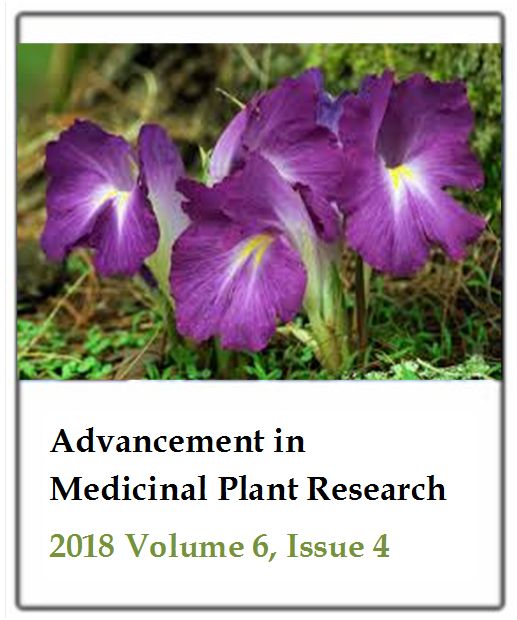The anticancer effect of plant enzymes on mouse breast cancer model
Y. H. Gu, T. Yamasita, D. J. Choi, H. Yamamoto, T. Matsuo, N. Washino, J. H. Song and K. M. KangAdvancement in Medicinal Plant Research
Published: November 27 2018
Volume 6, Issue 4
Pages 70-77
DOI: https://doi.org/10.30918/AMPR.64.18.027
Abstract
Excessive nutrition and increasingly westernizing dietary choices may be contributing toward a recent trend in rising incidences of chronic lifestyle-related diseases. In this study, we like to evaluate the anti-cancer properties of plant enzyme derived Validux using a mouse model. The anti-cancer properties of Plant Enzyme Validux (PEV) was evaluated using a mouse model. 5 weeks old male BalB/c mice were randomly distributed into four experimental groups: Control, PEV only, 2Gy (gray) only, and PEV + 2Gy. Experimental units were administrated (oral administration by stomach sonde) with 500 mg/kg daily dosage of PEV for 14 days before being subjected to 2Gy of whole body irradiation. Flow cytometry was used to observe the changes in leukocyte and T-Lymphocyte numbers. The PEV treatment group showed statistically significant increase in cytotoxic CD8+ lymphocyte count versus the control group while increased leukocyte and lymphocyte recovery rate was observed in the PEV + 2Gy group. Ordinary trend was also observed in granulocytes. In order to observe PEV’s effect on tumor growth, Experimental units were inoculated with SSC7 mouse carcinoma cell line following 14 days of daily PEV administration. PEV treatment groups showed decrease in tumor volume and mass vis-à-vis control. Thus, we would like to propose that PEV may be potentially used as a radioprotective supplement in radiotherapy for tumor suppression.
Keywords: Plant enzymes (Validux), radioprotection, T-lymphocytes, CD8, anti-tumor effects, immune system.
Full Text PDFThis article is published under the terms of the Creative Commons Attribution License 4.0

